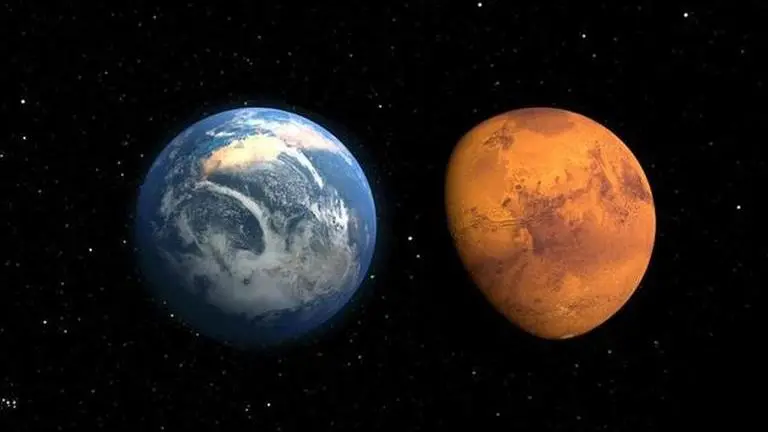Updated 6 June 2022 at 18:52 IST
Mars & Earth might have seen life originate via same factors, breakthrough study suggests
Mars, unlike Earth, has not suffered a continental drift or a shift in its plate tectonics which has left billions of years old rocks intact, says the study.
- Science News
- 2 min read

For several years, scientists have claimed that life might have originated on Earth through amino acids that were brought to our planet by incoming meteorites. Recently, a new team of scientists announced a major breakthrough in determining the origin of life and explaining how it came to be. Interestingly, the experts also claimed that the aforesaid factor might have been responsible for the origin of life on Earth's neighbour, Mars.
How did life originate on Earth?
According to the study that was led by Elisa Biondi and published in the journal Astrobiology, ribonucleic acid (RNA), an analogue of DNA was likely the first genetic material for life on Earth. The experts at the Foundation for Applied Molecular Evolution explained that the RNA spontaneously forms on basalt lava glass, something which was abundant on our planet approximately 4.35 billion years ago.
Emphasising the widescale presence of basaltic glass across the planet, Stephen Mojzsis, another contributor to the study, revealed that they emerged due to the abundance of molten basaltic lava. It is evident that the Earth endured heavy impacts for millions of its initial years and saw rampant volcanic activities which resulted in the abundance of basaltic lava and thus basaltic glass. "Impacts also evaporated water to give dry land, providing aquifers where RNA could have formed", Mojzsis added as per Phys.org. The study even underscored that the percolation of nucleoside triphosphates through basaltic glass results in long RNA molecules about 100-200 nucleotides in length.
How does this equate to Mars?
The aforementioned finding is crucial because the experts say that similar basaltic glass can be found on Mars. This means that there once must have occurred the formation of RNA on the red planet, which might have resulted in the origin of life. "If life emerged on Earth via this simple path, then it also likely emerged on Mars," Steven Benner said in a statement as per Phys.org. "This makes it even more important to seek life on Mars as soon as we can."
Advertisement
The experts arrived at the conclusion because it is evident that Mars has not suffered a continental drift or a shift in its plate tectonics which has left billions of years old rocks intact. Meanwhile, whether life existed on Mars or not would be clear once NASA retrieves the rocks samples, being collected by its Perseverance rover, possibly in the early 2030s.
Published By : Harsh Vardhan
Published On: 6 June 2022 at 18:52 IST
